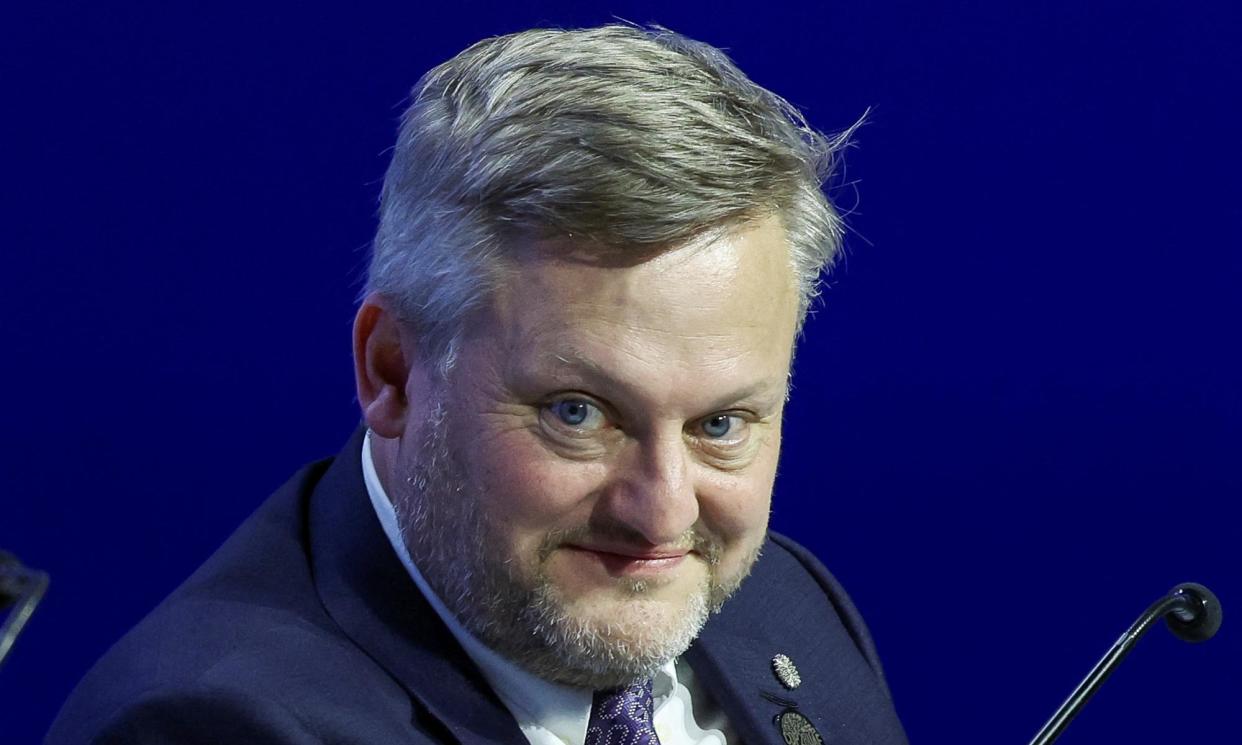BP imposes hiring freeze and halts new offshore wind projects

The head of BP has imposed a hiring freeze and halted new offshore wind projects, in an apparent attempt to placate investors who are unhappy with the oil company’s green targets.
Murray Auchincloss, BP’s former finance chief, took up the role of CEO in January after the shock departure of his predecessor, Bernard Looney, with a promise to focus on delivering value for shareholders.
Looney, who had committed BP to some of the industry’s greenest climate goals, was ousted last September for failing to disclose relationships with colleagues.
The decision to slow BP’s green ambitions has stoked concerns that Looney’s plan to move the company away from fossil fuels, with a pledge to “become a net zero company by 2050 or sooner”, may soon be derailed.
BP has come under pressure from shareholders over its green targets because some renewable projects have proved more costly than expected, and profits from oil and gas have soared after Russia’s invasion of Ukraine more than two years ago.
In response, the company set out plans earlier this year to cut oil and gas production by just 25% between 2019 and 2030 – well short of its previous target of a 40% reduction over the same timeframe.
Greenpeace UK said BP’s plans were “disappointing but sadly unsurprising”.
Areeba Hamid, its joint executive director, said: “Murray Auchincloss had a chance to build on his predecessor’s legacy and become part of the solution to the climate crisis, rather than its harbinger. Instead, BP is following other fossil fuel majors by abandoning renewables and doubling down on oil and gas in the hopes of a quick buck.”
Auchincloss is reportedly looking at investing in and possibly acquiring new oil and gas assets to strengthen BP’s existing operations, particularly in the Gulf of Mexico and the shale basins acquired from the Anglo-Australian miner BHP in Texas.
Earlier this month BP’s rival Shell set out its own plans to scale back its green growth ambitions, reducing the number of staff working on low-carbon solutions by about 200 roles while shifting the focus towards high-profit oil projects and expanding its gas business.
Alice Harrison, the head of fossil fuels campaigning at Global Witness, said: “Since the energy crisis began earning [BP] record-breaking profits, it has shown its true colours, slashing its climate targets and renewables investments in favour of earning a quick buck from increased fossil fuel production.”
Over the past four years, BP has built up a sizeable portfolio of offshore wind projects capable of generating 9.5 gigawatts of energy in total in the UK, Germany and the US that are yet to be developed. It wants to focus on these assets, it is understood, rather than bidding for new renewable projects.
It has reassigned dozens of people tasked with finding new renewables opportunities to its offshore wind projects in Britain and Germany, Reuters reports, and could make some job cuts in renewables. The hiring freeze is expected to have a few exceptions for frontline roles.
BP shares were up more than 1% on Thursday, but have underperformed rivals in recent months, prompting speculation that the company could be a takeover target. Looney set out a “net zero” plan that originally aimed to cut the company’s oil production by 2030, while others plan to increase their fossil fuel production.
BP is also investing in biofuels and low-carbon businesses that can generate returns in the short term. A week ago the company agreed a $1.4bn (£1.1bn) deal to take full ownership of its Brazilian sugar and ethanol joint venture, but it said it was scaling back plans for development of new biofuels projects.
BP said: “As Murray Auchincloss said in February, BP’s destination – transforming from international oil company to integrated energy company – is unchanged, but we are going to deliver as a simpler, more focused and higher-value company.
“We set out six priorities that underpin this, including driving greater focus into the business, on to activities that create the most value, as well as delivering both the next wave of efficiencies and BP’s growth projects.”
Auchincloss has pledged a “more pragmatic” approach to BP’s green targets since taking up the CEO role permanently in January. In May, BP said it would cut $2bn of costs by the end of 2026, after reporting lower than expected profits for the first quarter of the year. Auchincloss said he planned to make the savings by choosing fewer new projects to invest in over the coming years.


